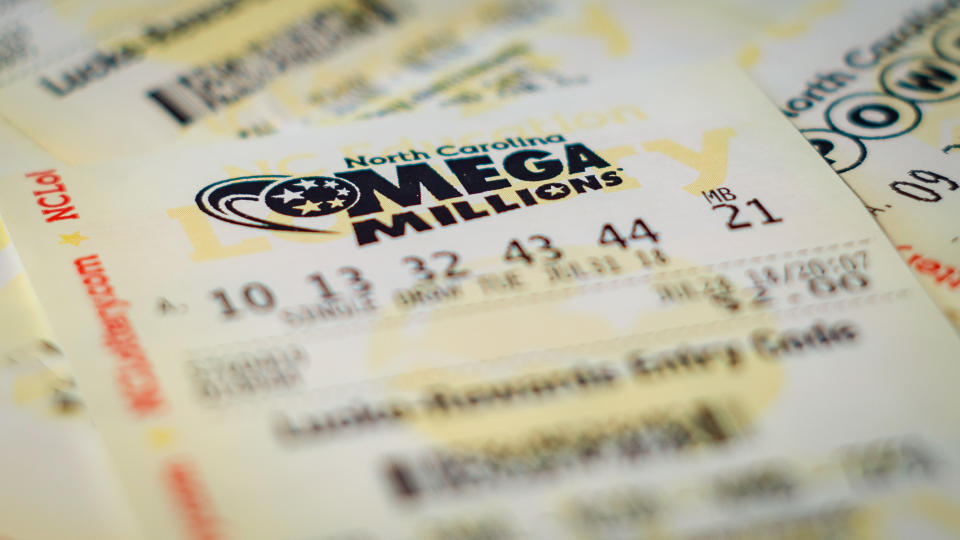What Are Your Real Chances of Winning the Lottery?
- Oops!Something went wrong.Please try again later.
- ^GSPC

Lotteries serve two main purposes. First, they raise money for schools, state budgets and gambling addiction programs. Second, they fuel excitement among players, who dream of winning life-changing amounts of money.
I’m a Financial Planning Expert: Here Are 5 Things You Should Never Spend Money on If You Want To Be Rich
More: How To Build Your Savings From Scratch
Although playing the lottery can be a thrill, the reality is that your odds of winning a jackpot are essentially zero. That can be a tough pill to swallow, because part of the exhilaration that comes from playing the lottery is the idea that anyone can win the big prize. Every player should know exactly what they’re getting into when they play the lottery though, especially if it is used as an investment strategy rather than a passing amusement.
Here’s a hard look at the figures behind the lottery and your chances of winning, in black and white.
Real Odds of Winning the Lottery
Here’s the cold hard truth when it comes to the lottery: for one of the most popular lotteries in the United States, Mega Millions, your odds of winning are about 1 in 176 million. If you’re playing a single-state lottery, like the California Super Lotto, your odds increase — to 1 in 42 million. While on paper that might seem like a major increase in your odds, 42 million to 1 is still awfully close to zero.
Your Chance Is Exactly the Same as Everyone Else’s
Statistics are an interesting thing. They can often present a singular mathematical truth that obscures the big picture. Winning the lottery is a perfect example. Lottery players often claim that the ticket they buy has the exact same chance of winning as any other ticket — and that’s a mathematical truth. However, it doesn’t address the larger, more important mathematical truth that each ticket has basically no chance of winning.
So, while your lottery ticket may have the same odds of winning as anyone else’s, you all share essentially no chance of hitting it big.
Take Our Poll: Who Has Given You the Best Money Advice You Have Ever Received?
Odds of Other Unlikely Events
To put your odds of winning the lottery into perspective, here are some other longshots that occur far more frequently than winning the lottery:
You are about 30,000 times more likely to experience a bathroom injury than you are to win the Mega Millions jackpot, according to the CDC
According to the National Weather Service, you are about 250 times more likely to be struck by lightning than you are to win the lottery
Data from the Florida Museum shows you are about 80 times more likely to die by shark attack than to win the lottery
Most Americans don’t fear being killed by a shark or struck by lightning on a daily basis, yet many do believe they can win the lottery. While all of these events certainly can happen, the odds that they do are minuscule.
How To Improve Your Odds
There is one way that you can mathematically improve your odds of winning the lottery: buy more tickets. The more tickets you buy, the greater the statistical chance you have that one of those tickets is a winner. However, this is another example of how a mathematical truth can obscure the big picture. While your odds of winning the Mega Millions jackpot may double if you buy two tickets instead of one, they’ll only rise from 1 in 176 million to 2 in 176 million — still essentially zero.
Buying more tickets to improve your lottery chances still ends up being a losing strategy, as you’ll have to risk more capital to improve your odds. For example, if you spend $10 on Mega Millions tickets instead of $2, your odds of winning may increase, but you’ll also be spending five times as much money while your odds remain statistically close to zero. The likelihood of wiping out your entire savings is much higher than your chances of winning the Mega Millions jackpot.
The Real Winning Ticket: Long-Term Investing in the Stock Market
If you’re looking to cash in on the “real” winning lottery ticket, take the money you would normally spend on lottery tickets and invest it in the stock market. The supposedly “risky” S&P 500 index has never lost money over any 20-year period, and it has provided a return to investors over the long run exceeding 10% annually. This means your money will double roughly every 7 years.
If you put $15 per day — or $450 per month — into the S&P 500 index instead of buying lottery tickets, after 30 years your expected nest egg would be over $1 million. If you had instead put that money into lottery tickets, you would have likely spent $162,000 and still never won the Mega Millions jackpot.
Although there’s nothing wrong with playing the lottery for entertainment purposes, choosing it as an investment strategy over buying a simple S&P 500 index fund isn’t a prudent financial move. In summation, play the right odds.
More From GOBankingRates
This article originally appeared on GOBankingRates.com: What Are Your Real Chances of Winning the Lottery?

 Yahoo Finance
Yahoo Finance